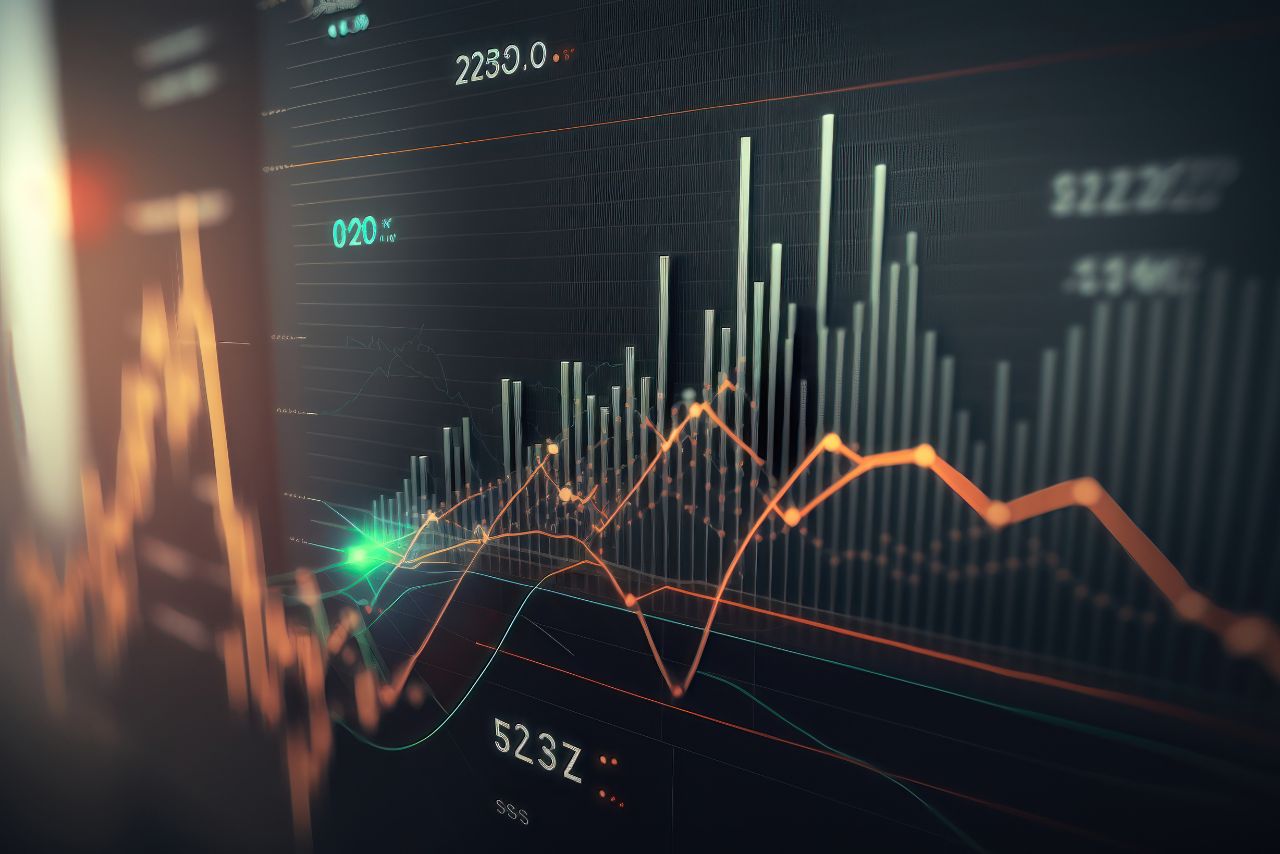Trading is the activity of buying and selling financial assets, such as stocks, currencies, commodities, etc., in order to make a profit. Trading can be done for various reasons, such as speculation, hedging, arbitrage, or diversification. Trading can also be done in different markets, such as forex, futures, options, or crypto.
But is trading a good financial decision in 2023? The answer is not straightforward, as trading involves both opportunities and risks. Trading can be rewarding, but it can also be challenging. Trading can be profitable, but it can also be costly. Trading can be fun, but it can also be stressful.
Therefore, before deciding to trade in 2023, one should consider getting educated in trading and the following factors:
The Outlook for the Global Economy and Trade
The outlook for the global economy and trade in 2023 is not very optimistic. According to the World Trade Organization (WTO), world merchandise trade volume is projected to grow only 1.7% in 2023, after a 2.7% expansion in 2022. The WTO also warns that the risks to the forecast are tilted to the downside, due to uncertainty caused by the Federal Reserve’s interest rate hikes, the possibility of a recession, geopolitical tensions, food insecurity, potential financial instability, and increasing levels of debt.
The global economic growth is also expected to moderate in 2023, with real GDP growth at market exchange rates of 2.4%, below the average of 2.7% for the past 12 years. The inflation pressure is likely to persist, with global core inflation remaining above 3% through to 2024. This could prompt further monetary tightening by central banks, which could undermine the health of the private sector and trigger a synchronized global recession before the end of 2024.
These factors could have a negative impact on the performance and volatility of the financial markets in 2023. Therefore, traders should be cautious and prepared for possible shocks and fluctuations.
The Type and Style of Trading
The type and style of trading that one chooses can also affect the profitability and suitability of trading in 2023. Different types of trading instruments have different characteristics, risks, and rewards. For example, stocks are more affected by company-specific factors and market sentiment, while currencies are more influenced by macroeconomic factors and interest rate differentials. Commodities are more sensitive to supply and demand dynamics and geopolitical events, while cryptocurrencies are more volatile and speculative.
Similarly, different styles of trading have different time horizons, objectives, and strategies. For example, scalping is a short-term trading style that involves taking small profits from frequent trades within minutes or hours. Day trading is a medium-term trading style that involves opening and closing positions within the same day. Swing trading is a long-term trading style that involves holding positions for days or weeks. Position trading is an even longer-term trading style that involves holding positions for months or years.
Depending on the type and style of trading that one chooses, one may need different levels of capital, knowledge, skills, tools, and discipline. Therefore, traders should choose the type and style of trading that best suits their goals, preferences, resources, and abilities.
The Level of Education and Experience
The level of education and experience that one has can also determine the success and satisfaction of trading in 2023. Trading is not an easy or simple activity that anyone can do without proper education and experience. Trading requires a lot of knowledge, skills, and experience. Trading also requires a lot of discipline, patience, and emotional control.
Without these qualities, one can easily make common mistakes that can lead to losses or missed opportunities. Some of these mistakes are:
- Trading without a plan or a goal
- Trading with money that one cannot afford to lose
- Trading with too much leverage or margin
- Trading with too much greed or fear
- Trading with too much ego or pride
- Trading without doing proper research or analysis
- Trading without following one’s own rules or guidelines
By educating oneself in trading before trying it, one can avoid these common mistakes and develop a more professional and profitable approach. By gaining experience in trading through practice and learning from others, one can improve one’s performance and results.
Conclusion
Trading is a complex and sophisticated activity that involves both opportunities and risks. Trading can be a good financial decision in 2023 if one considers the outlook for the global economy and trade, the type and style of trading that one chooses, and the level of education and experience that one has. However, trading can also be a bad financial decision in 2023 if one ignores these factors or overestimates one’s abilities.
Therefore, before deciding to trade in 2023, one should do a thorough self-assessment and a careful market analysis. One should also have realistic expectations and a clear strategy. One should also be ready to face the challenges and uncertainties that trading may bring.




